Trump walking fine line in supporting Iran protesters

WASHINGTON: With tweets of solidarity in Farsi and technological tools to circumvent internet shutdowns, U.S. President Donald Trump might be close to exhausting his options to support Iranian protesters rising up against their rulers.
U.S. officials say the administration needs to avoid any overtures that could draw accusations of foreign meddling - like direct financing - and increase the chances of a violent crackdown on the people it wants to support.
The day after protests broke out in Tehran and other cities following Iran’s admission on Saturday after days of denials that it shot down a Ukrainian airliner, killing all 176 people aboard, Trump sent a tweet in Farsi aimed at Iran’s leaders: “DO NOT KILL YOUR PROTESTERS.” It was retweeted almost 80,000 times.
U.S. officials said the intent of Trump’s tweet and other voices of support within the administration was to reinforce the message that Washington stands in solidarity with the Iranian people, while helping shine a light on the motivation of the protesters and let the Tehran government know “we are paying attention.”
The demonstrators met a fierce police response in several places during four days of protests. In November, a crackdown on protests caused by fuel price hikes killed hundreds of people.
The Ukraine International Airlines flight from Tehran to Kiev was downed by Iranian air defenses when the armed forces were on high alert for U.S. reprisals, hours after Iran launched missiles against U.S. targets in Iraq in retaliation for a U.S. drone strike that killed top Iranian commander Qassem Soleimani on Jan. 3. Most of those on board were Iranians or dual citizens.
“We’re not looking for regime change or all-out war,” said one U.S. official, speaking on condition of anonymity. “We’re just telling you (that) you can’t have a nuclear weapon and don’t shoot protesters.”
The United States has worked with technology companies to help create tools for the Iranian people to circumvent Tehran’s restrictions on the internet, said Brian Hook, U.S. special representative for Iran. During the November protests, tens of thousands of people used those tools to communicate, he added.
“We’re going to continue to look for technology tools to help the Iranian people circumvent the regime censorship and internet shutdown,” Hook told Reuters when asked what tangible efforts Washington could offer to help protesters.
PUNISHING SANCTIONS
Some see hypocrisy in Trump’s show of concern.
While the administration emphasizes that it stands by the Iranian people, heavy U.S. sanctions reimposed by Trump have hastened the economy’s deterioration and worsened economic conditions for ordinary Iranians, experts say.
“His words carry almost no credibility with an Iranian public who saw him just now impose more sanctions,” said Aaron David Miller, senior fellow at the Carnegie Endowment for International Peace.
“So if you ask me if Trump has a public relations strategy when it comes to supporting these protests, the answer is no. It’s all driven by his moods, his political needs and his desire to separate himself from his predecessor.”
While the United States says its sanctions are laser-focused to hurt Iran’s leaders, many foreign banks and companies are deterred from doing business with the Islamic Republic, even for supplies of food and medicine, which are exempt from sanctions.
Democrats say there is more the White House can do to send a message to the Iranian people, such as lifting the ban on travel by Iranians to the United States. Iran was included in a travel ban Trump launched early in his presidency aimed at stopping the export of what Washington calls state-sponsored terrorism.
There has been no indication yet that Trump is considering doing so.
While some analysts believe the United States would not be totally uncomfortable with a regime change, Washington has reason to be wary of overstepping too much. The latest example of foreign diplomats landing in hot water in Iran came last week, when Britain’s ambassador to Tehran was briefly detained, accused of attending a protest.
“We leave the future of Iran to the Iranian people. It will not be decided by the United States government and that’s been our policy for almost three years,” Hook said.
Asked if Trump would post more on protesters, Hook said: “It would not surprise me. I think you can expect the president to continue communicating directly with Iranian people.”
_Reuters






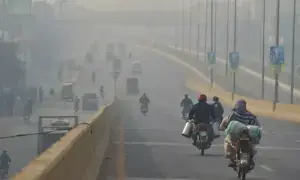


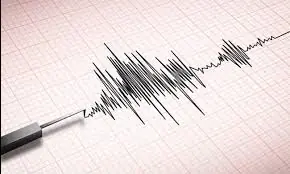

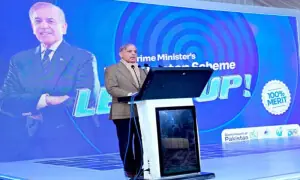
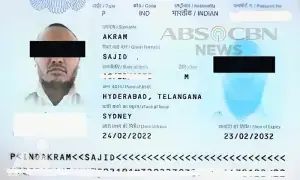
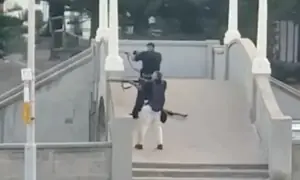
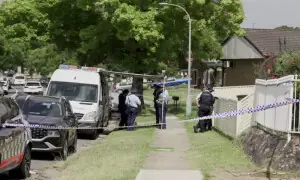


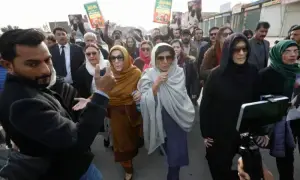
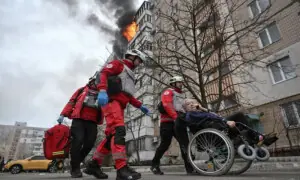
Comments are closed on this story.